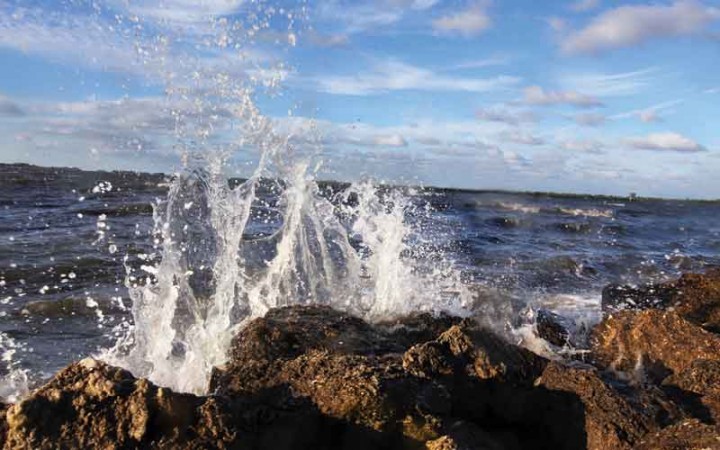ORCHID — The Orchid Town Council today passed a strong fertilizer control ordinance to help protect the Indian River Lagoon from nitrogen poisoning. The ordinance includes a rainy-season blackout period during which nitrogen fertilizer cannot be applied, a requirement for fertilizer that is at least 50 percent slow-release, and a prohibition on fertilizer application within 10 feet of open water.
Those three elements were added as amendments to the Florida State model ordinance, which was previously passed by the town council. It includes a number of other provisions intended to keep excess nitrogen and other nutrients out of the lagoon where they cause harm by feeding algae blooms that consume oxygen and cloud the water, killing seagrass and smothering marine life.
With Wednesday’s action, Orchid joined Indian River County and the other lagoon-side cities in the county – Vero Beach, Indian River Shores and Sebastian – in supporting strong fertilizer regulations that have proven effective in Sarasota, Tampa and other areas, helpings clean up bays and estuary and restore seagrass.
Mayor Harold Ofstie led the discussion in favor of the ordinance while Councilmember Francis “Bud” Oatway voiced the most objections.
Vice Mayor George Mekras mediated between the two through most of the meeting, seeming undecided.
The tide turned when Councilmember Paul Johnson spoke up near the end of the discussion, which revolved around questions about the effectiveness of a rainy-season ban and concerns that unfertilized grassy margins by ponds in Orchid might turn brown.
“After looking at all the material we received I have come to the conclusion we are a long way from definite scientific evidence about this,” Johnson said. “But having come to that conclusion, I have also concluded this something we can do that is probably a step in the right direction, and I plan to support it.”
“That is where I am at, too,” said Councilmember Harris F. Weber IV.
Weber then made a motion to pass the ordnance amending and strengthening the state model regulations and the motion passed 4-1, with Oatway voting no.
Present in the council chamber were John and Judy Orcutt, who had talked to the mayor previously to make the case for a strong ordinance and who were called on during the meeting to answer questions put by members of the town council.
It was a sweet moment for the Orcutts who have led the successful effort to get effective fertilizer regulations passed in the county and other cities along the lagoon.
Also present was Graham Cox of the Pelican Island Audubon Society who had submitted a letter in support of effective regulation.

